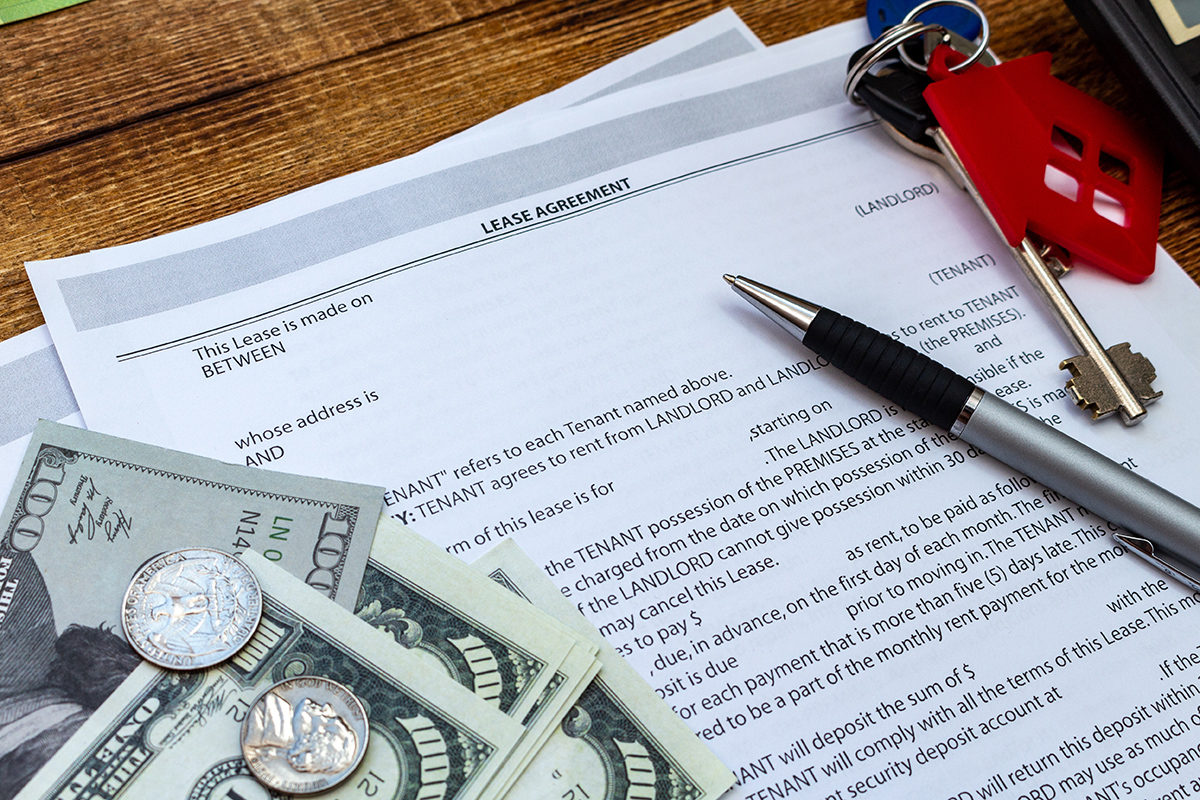A lease agreement in South Carolina is a legally binding contract through which a property owner, referred to as the landlord or lessor, agrees to rent or lease property (residential or commercial) to another party, distinguished as the tenant or lessee.
The agreement stipulates how the property will be used and for how long it can be used, as well as the consideration collected by the landlord from the tenant in exchange for occupancy.
Leasing property can be a delicate transaction between the landlord and the tenant, especially given the legal ramifications of violating South Carolina landlord-tenant laws. Because of this, the state mandates that all landlords document their agreements with their tenants in a written lease agreement. The contract outlines in explicit terms how the rental property will be maintained and treated while the tenant occupies it. This includes details such as monthly payments, lease duration, security deposit, and other tenancy obligations and responsibilities. Conflicts between the parties are reduced in this manner.
Typically, lease agreements are entered into by landlords so that the landlord can exercise his or her right of possession over the leased property while protecting their legitimate interests in both ownership and control of the leased items. However, not every rental contract can achieve this. The agreement must be properly executed in accordance with state regulations and signed by both parties. South Carolina’s property leasing laws are contained in Title 27, Chapter 40 (Residential Landlord and Tenant Act), but also consult Landlord & Tenant Law in South Carolina. This article will discuss in detail how to execute a legally valid lease agreement in South Carolina.
Editable Template
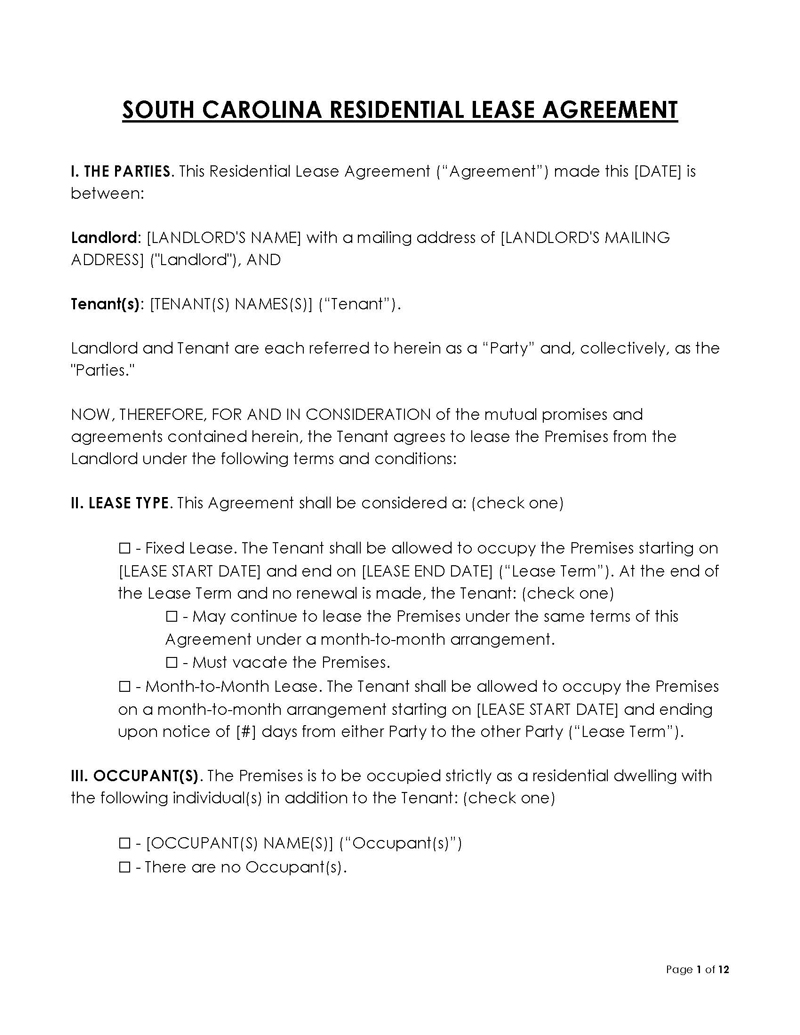
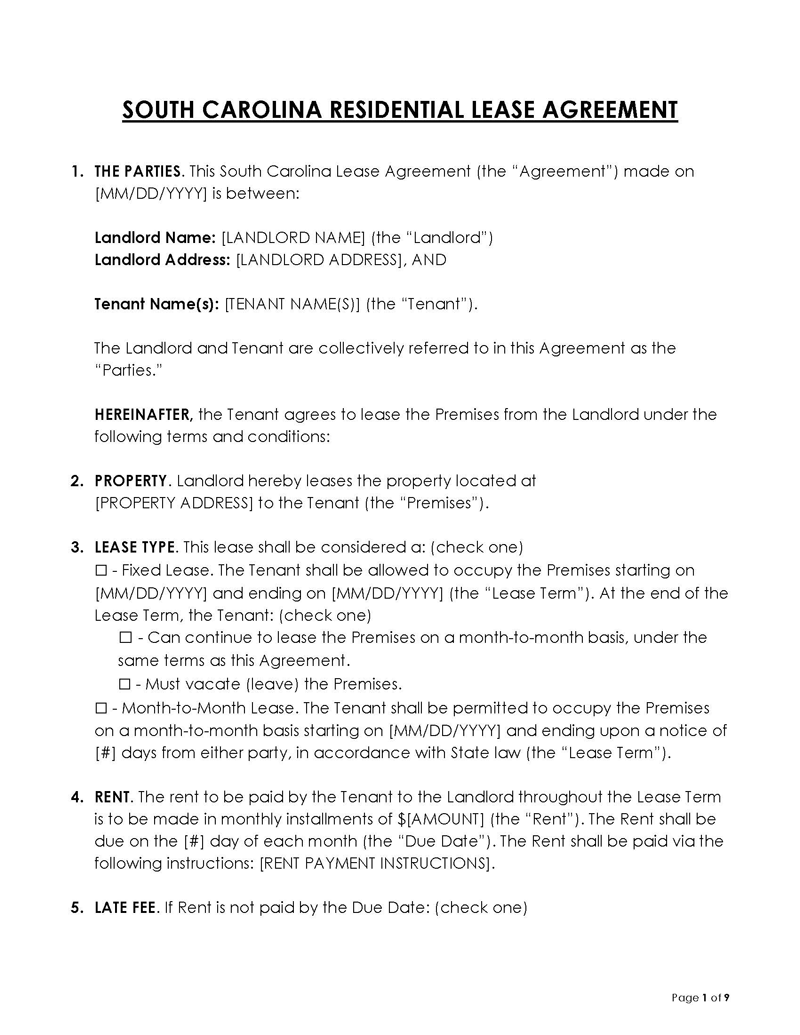
Lease Agreement Requirements in South Carolina
All applicable laws, disclosures, and addenda should be considered when drafting a lease agreement to ensure compliance. It will likely be considered a “void” agreement if it is not compliant.
The following are the essential clauses, disclosures, and addenda to include in a South Carolina property rental contract:
Mandatory disclosures
South Carolina’s laws dictate that landlords include some disclosures and addenda. These items can have an impact on the actions and activities of both lease parties. Landlords should prioritize the following disclosures and addenda.
- Agent and landlord information: This disclosure is a requirement under South Carolina laws § 27-40-420, and informs the tenant of the landlord’s name, address, telephone number, and provisional contact details such as an email address and website. If an agent is managing the property, then their details should be provided too. This information is needed for correspondence such as notices and demands.
- Security deposit calculation: An unequal deposit disclosure is required when the landlord owns more than four rental units in the same building and charges different security deposits for each rental unit (27-40-410). The landlord must provide the logic behind the different rates.
- Lead-based paint disclosure: Lead-based paint is a form of toxic dust that is known to cause eye, respiratory, and neurological problems. It can be found in toys, building materials, and electronic devices. Landlords are thus required to include a lead-based paint use disclosure in the South Carolina lease agreement for all rental units built prior to 1978. The disclosure should mention whether there is lead-based paint on the premises and the precautions for avoiding lead exposure.
Landlord’s access
All landlords will eventually need access to the property for a variety of reasons, including performing maintenance and repairs, collecting rent, handling tenant complaints, or even showing the unit to a potential buyer if they decide to sell the leased property. As a result, most states have guidelines as to how these instances should be handled. In South Carolina, these guidelines are based on certain stipulations.
- General access: According to Section 27-40-530(c), landlords must give notice 24 hours in advance of entering the property.
- Emergency access: A landlord may enter the premises without notice in case of an emergency (§ 27-40-530(b)(1))).
It should be specified in the lease agreement if a third party is permitted access to the property on the landlord’s behalf.
Security deposit laws
In South Carolina, laws also specify how security deposits must be handled. Landlords are not restricted in terms of how much they can charge as a security deposit. However, landlords should refund the security deposit thirty days after regaining possession of the premises or when the lease agreement expires (§ 27-40-410). There are no statutes that indicate that interest should be reimbursed or if the money should be kept in a separate bank account.
Types of Lease Agreements
Since a property can be leased under different terms and conditions, landlords can use different types of agreements in South Carolina. However, despite the discrepancies, note that all these agreements are used for the same purpose, i.e., to define the terms, conditions, rights, and obligations of each party toward the lease.
These types of lease agreements include the following:
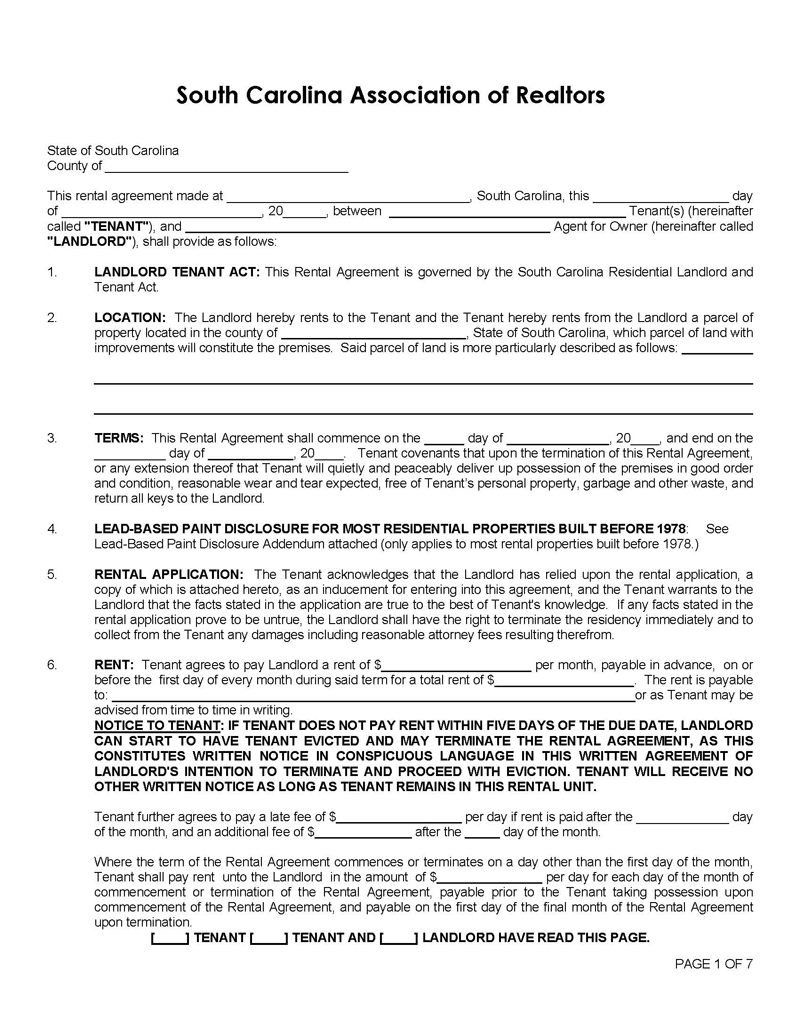
Association of Realtors
It is also known as Form 410 and is a document used to formalize the contract between a landlord and tenant when the landlord is represented by a realtor or agent affiliated with the South Carolina Association of Realtors.
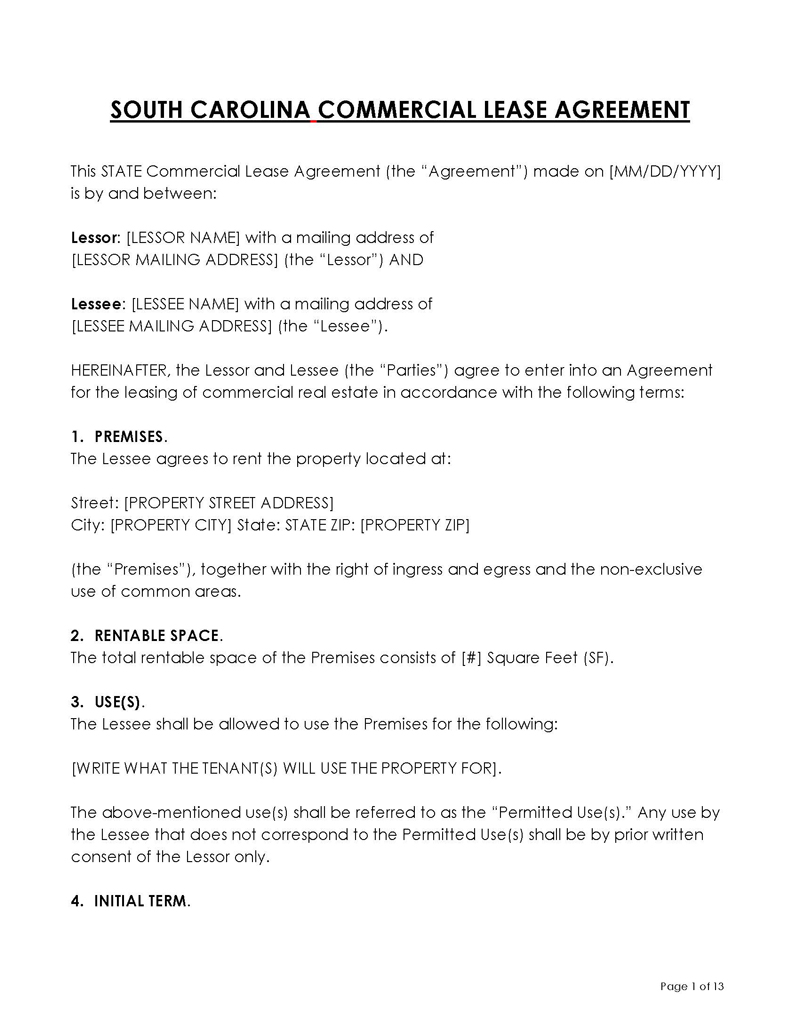
Commercial lease agreement
Commercial leases are used when the property being leased is for business purposes and not a residential rental unit. It grants the lessee full use of the premises for business operations. Examples of such properties are warehouses, offices, retail shops, etc.
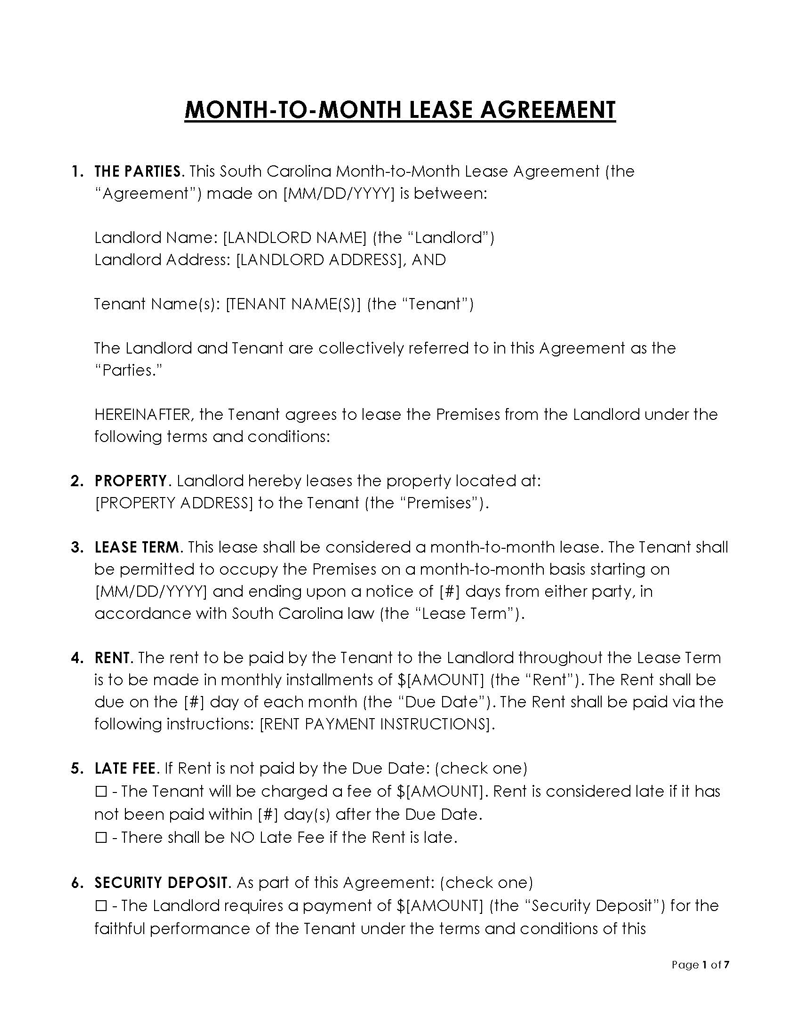
Month-to-month lease agreement
This contract is used when the tenant needs to rent a space for an indefinite period of time. As a result, the lease agreement is from one month to the next, with automatic renewal every month until it is terminated. Termination has to, however, be done with a 30-day notice. It is the least restrictive contract since either party can terminate it without cause before the expiration date.
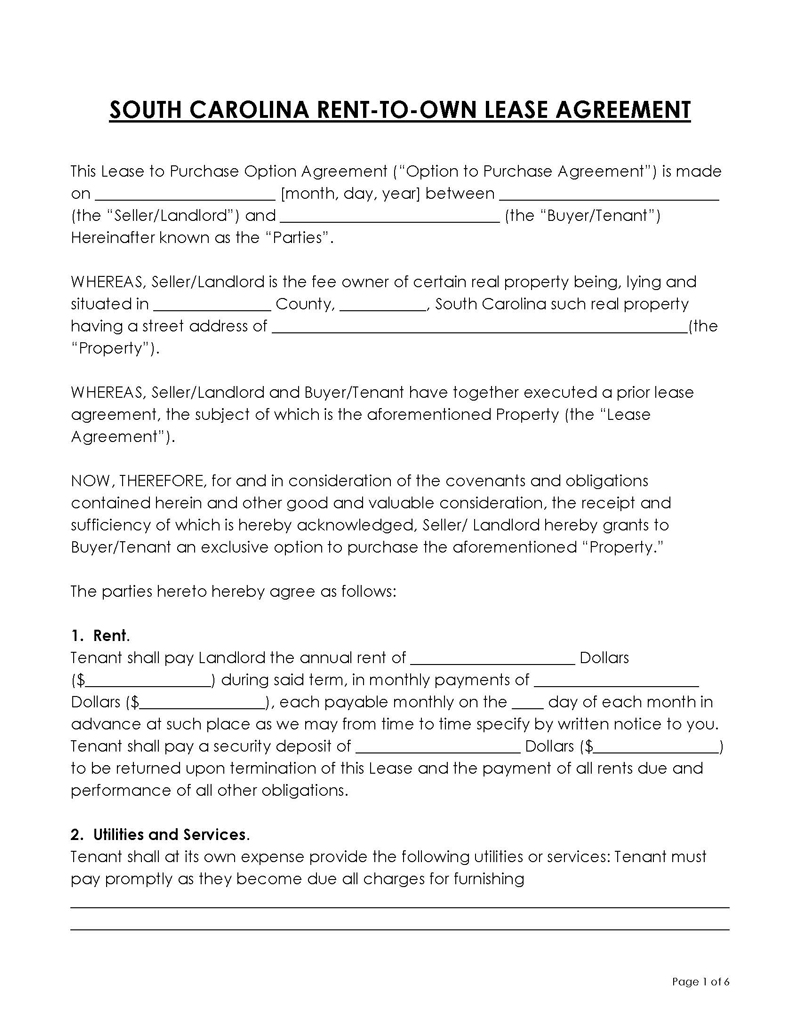
Rent-to-own lease agreement
When a tenant agrees to pay rent for an extended period of time with the goal of buying the property, this is known as a rent-to-own lease. It should be noted that the tenant has no guarantee of purchasing the property and can only make offers that the landlord will consider. This agreement grants the tenant the right to “break-option,” which allows them to leave the contract if they are unable to buy the property within a specified period of time.
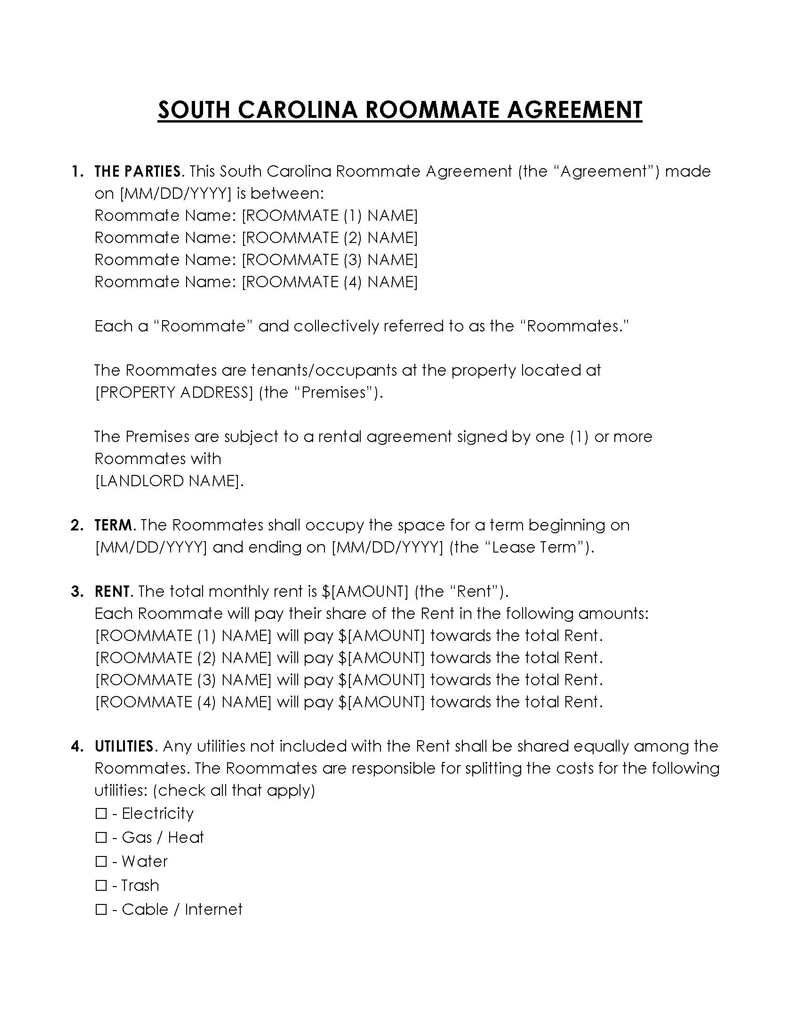
Roommate lease agreement
A roommate lease agreement is used to assign rights, obligations, and responsibilities to individuals renting the same rental unit as roommates. The landlord is not included in this agreement.
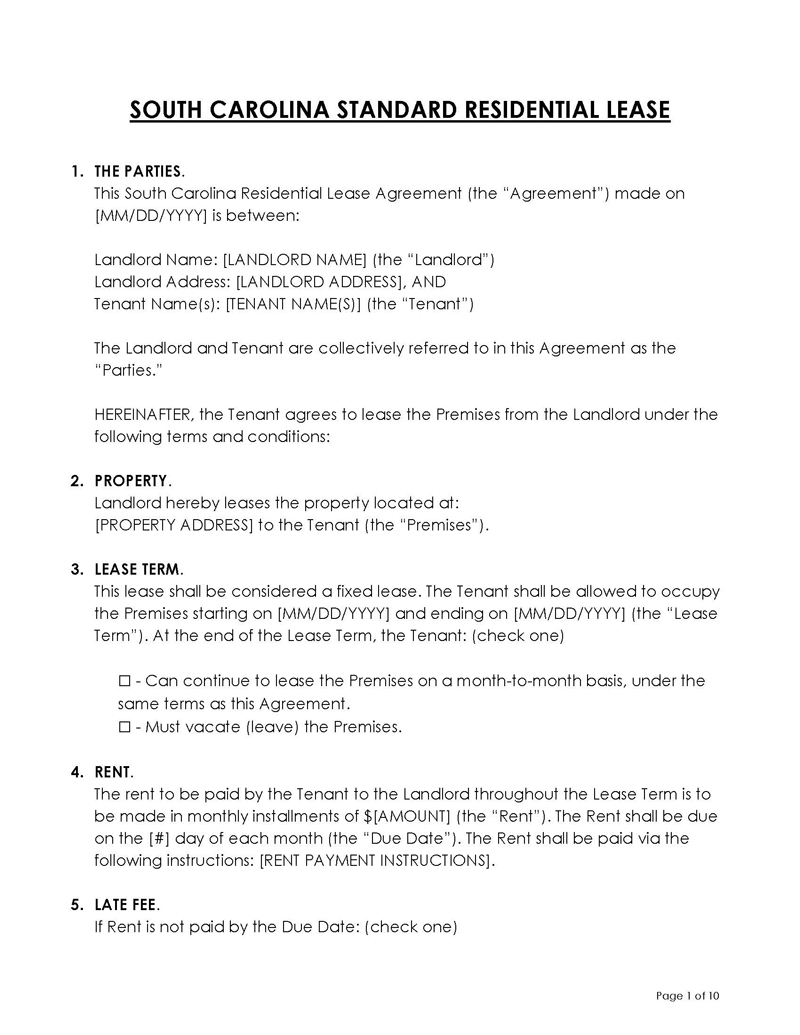
Standard lease agreement
The standard lease agreement is the most common rental agreement document in South Carolina. This type of contract is used when the lease term has a start and end date, typically lasting one year. It is a general form that landlords can use to stipulate the responsibilities of both parties and ensure that both parties, to the least extent possible, understand their rights and obligations. It, therefore, makes this transaction fairer for both of them.
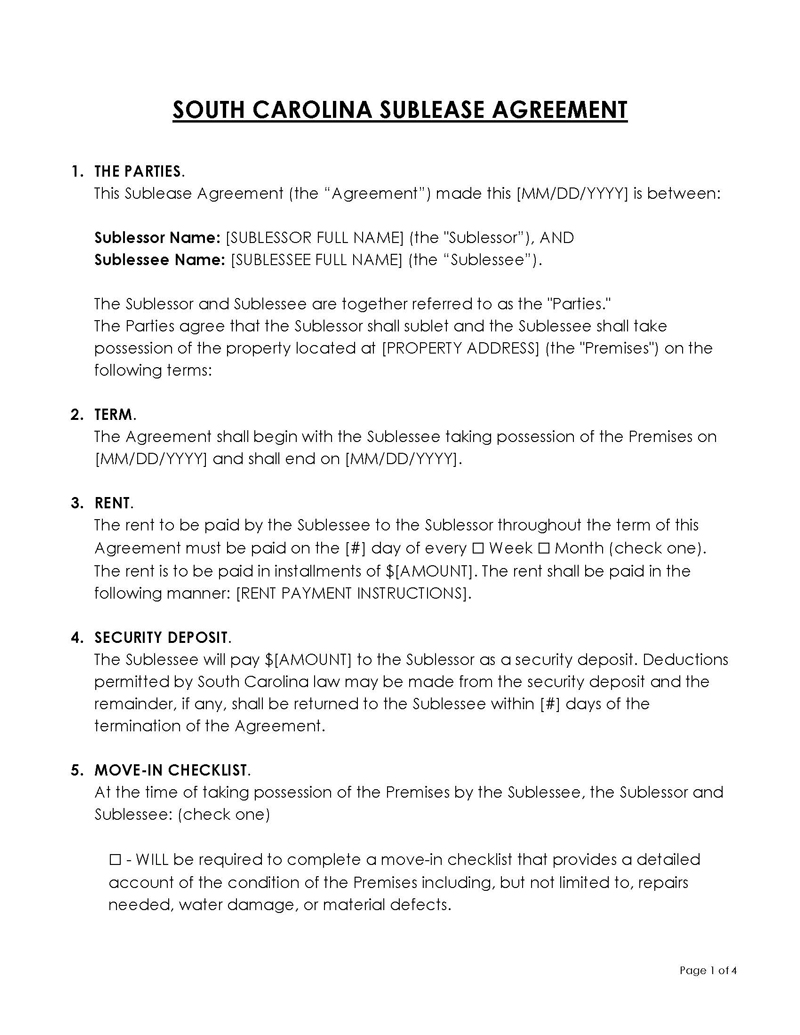
Sublease agreement
When one tenant decides to rent his or her share of the property to another person, a sublease agreement is used. This agreement is drafted with the landlord’s approval, as the original tenant must be able to show that they have obtained such approval. The sublease agreement will outline the new tenant’s obligations and responsibilities towards both the landlord and the original tenant. The original lease contract, known as the “master lease,” remains in effect until its expiration date.
Conclusion
Like in most states, the rental laws in South Carolina are designed to protect the interests of both parties involved in rental transactions. Landlords are required to respect the tenant’s rights to fair treatment and protection against unreasonable searches and evictions. Leasing arrangements should be documented in a lease agreement. These agreements can be drafted and prepared by either party.
However, since landlords are more likely to be held accountable for violations of landlord-tenant laws, it is advised that they prepare these documents. Since the entire process can be complicated, in some cases, landlords are advised to seek the assistance of an attorney to ensure that they understand the law and the consequences of violating it.




